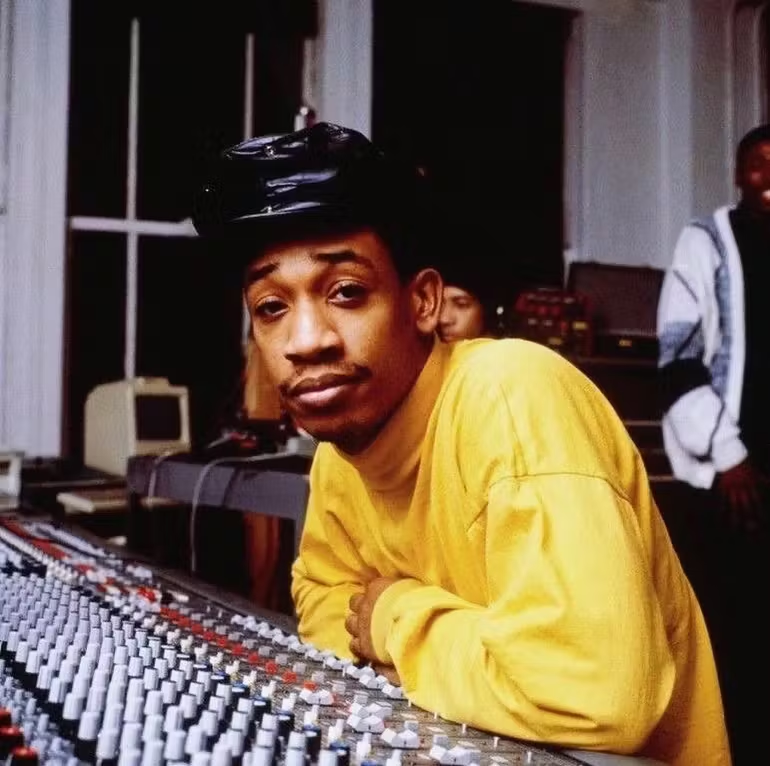De La Soul — 3 Feet High and Rising
De La Soul’s debut album opened the door for an alternative sound in Hip-Hop. 3 Feet High and Rising may have introduced Jazz Rap, but the ones De La influenced ended up making much better albums.
De La Soul
Maseo (left), Trugoy the Dove (middle) and Posdnous (right)
At the current time of writing Hip-Hop is one of the most popular genres of music in the world. In the 1980s this wasn’t the case, the genre only started its journey to becoming a worldwide phenomenon four decades ago. In the 1980s Hip-Hop was incredibly young, filled with different acts that were transcending the genre. The early parts of the decade saw early chart success with Kurtis Blow’s “The Breaks” and Grandmaster Flash and the Furious Five’s “The Message”. The latter half of the decade introduced various East Coast Hip-Hop acts that introduced new sounds, flows and rhymes, from the likes of Rakim, Public Enemy to Boogie Down Productions.
Nearing the end of the decade, De La Soul’s 3 Feet High and Rising stood out from the rest. Thanks to Prince Paul, who produced the album, the album incorporates sounds and samples from various genres, such as soul, funk to even psychedelic rock. The album’s content and structure can come across as odd and it definitely was odd back in 1989. The album became a huge critical and commercial success, spawning one of biggest Hip-Hop singles of the year with “Me, Myself and I”.
Everyone tends to have albums that they personally don’t love or connect with, whilst everyone else does. 3 Feet High and Rising is one of those albums for me. Whilst it has gotten praise for its influence and how unique of an album it was for its time, to which I recognise and understand, I personally for one do not connect with the album's structure, its numerous skits and certain themes of the album.
Prince Paul
One of the biggest gripes that I have with the album is the huge amounts of skits and short interludes/songs. Out of 24 tracks there are nine of them. There are some out there who hate skits and interludes, however I don’t. Skits and interludes can be useful and engaging, as they can be important pieces within concept albums, they can provide context before the actual song comes on or they can even be just humorous. When it comes to De La’s debut album, their skits seem to mostly disrupt the flow of the album, I don’t think they are funny and I don’t believe they provide any value to the listener. Take for example the fifth track “Can You Keep A Secret”, it consists of one the best beats on the whole album, however I personally think it’s wasted, as the trio just whisper nonsense throughout the track. The only reason I can think of why they did this was for humor. If so, it’s not funny at all. Additionally, I’ve never been a fan of sex skits, so I definitely didn’t care for “De La Orgee”, which is just 74 seconds of sex noises and that’s very excessive if you ask me.
Besides the huge amounts of skits and interludes, there are also songs that I just didn’t care about and weren’t a fan of. “Jenifa Taught Me (Derwin’s Revenge)” is sonically not pleasing, though Prince Paul did some great production work on the album, this track isn’t one of them. The production comes across quite bland, and all over the place. In addition, all three members struggle to flow well on the song. Similar to “Jenifa Taught Me”, “Potholes in My Lawn” also suffers from poor production, as I can’t stand the yodeling sample.
On the other hand and on a postive note, there are more good songs than bad ones on this album. Some of the album’s singles such as “Eye Know”, “Say No Go” and “Me, Myself and I” are some of the best songs on the whole entire album. It’s here where Prince Paul’s sampling and production work are at its best, showcasing how 3 Feet High and Rising were so left field sonically. As a member of the Native Tongues collective, De La enlisted fellow Native Tongues members the Jungle Brothers and a fairly unknown Q-Tip for the posse cut “Buddy”. The track is another huge highlight on the album, with Q-Tip delivering the best verse.
Though I may not be a fan of this album, I will not ignore or deny its influence. It ushered in a new sound to Hip-Hop and helped introduce Jazz Rap, opening the doors for acts such as A Tribe Called Quest and The Roots. From a production standpoint it has influenced numerous albums that came after it, however the artists and groups that this album influenced, in my opinion they went on to produce better albums with even better production and much better rapping.




